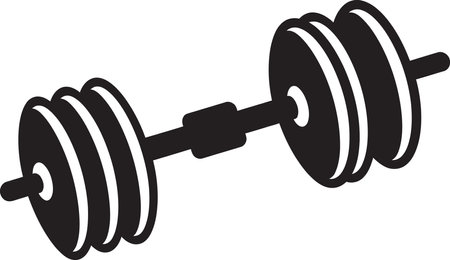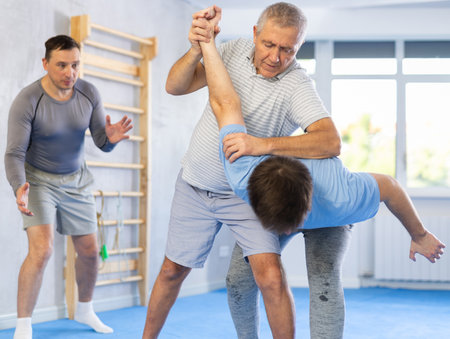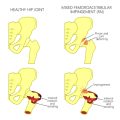Introduction to Adaptive Equipment and UK Standards
Adaptive equipment plays a vital role in supporting individuals to maintain independence and quality of life within their own homes. In the UK, a wide variety of adaptive devices and aids are available to assist people with different levels of physical or cognitive challenges, allowing them to carry out daily living tasks more safely and confidently. From grab rails and shower seats to specialised kitchen tools, these items are designed to promote autonomy while reducing the risk of injury or unnecessary dependence on carers.
The importance of adaptive equipment extends beyond convenience—it is closely linked to dignity, personal choice, and participation in everyday activities. Recognising this, the UK has established comprehensive guidelines and regulations to ensure that such equipment meets high standards for safety, accessibility, and effectiveness. Bodies such as the British Standards Institution (BSI) set benchmarks for product quality, while local authorities and the NHS provide guidance on assessment and provision based on individual needs. This regulatory framework ensures that adaptive equipment is not only suitable but also tailored to support independence at home for people across England, Scotland, Wales, and Northern Ireland.
2. Assessing Individual Needs: Getting the Right Support
Finding the most suitable adaptive equipment starts with a thorough assessment of your individual needs. In the UK, there are established pathways to ensure you receive the right support and advice, tailored to your daily living requirements.
How to Identify Your Personal Needs
The first step is self-assessment. Consider the specific challenges you face with daily tasks such as bathing, dressing, cooking, or moving around your home. It may be helpful to keep a diary for a week, noting activities that are difficult or require extra effort. Reflect on questions like:
- Which tasks do I find most challenging?
- What times of day are particularly difficult?
- Do I need help with mobility, personal care, or household chores?
Accessing Professional Assessments in the UK
If you think adaptive equipment could make life easier, a professional assessment will help identify exactly what will benefit you most. In the UK, there are several routes to access this support:
| Service | How to Access | What They Offer |
|---|---|---|
| Local Council Social Services | Contact your local council’s adult social care team (via their website or by phone) | Assessment of daily living needs and recommendations for equipment/adaptations; may provide equipment free of charge if eligible |
| NHS Occupational Therapist (OT) | Ask your GP or hospital consultant for a referral | Specialist assessment of physical and cognitive needs; advice on suitable aids and adaptations |
| Private Occupational Therapist | Find registered OTs through organisations like RCOT or independent practices | Bespoke assessments (may incur fees); often quicker than public services |
What to Expect During an Assessment
A professional assessor—usually an occupational therapist—will visit your home (or arrange a clinic appointment) to discuss your daily routines and observe how you manage key tasks. They may suggest simple solutions such as grab rails or more complex aids like stairlifts. Assessors will always consider your personal preferences and long-term independence when making recommendations.
Your Rights and Next Steps
You have the right to request an assessment from your local council if you feel you need support at home. There is no charge for this initial assessment, and it is open to all UK residents regardless of income or savings. Following the assessment, you’ll receive a written care plan outlining recommended equipment and support services. If eligible, some equipment and minor adaptations may be provided free of charge by your local authority or NHS.

3. Common Types of Adaptive Equipment for Home Use
When it comes to supporting independence at home, there is a wide array of adaptive equipment available in the UK, tailored to meet different needs and preferences. Understanding the most common types can empower individuals and their carers to make informed choices that enhance daily living.
Mobility Aids
Maintaining mobility within the home is essential for independence. Popular options include:
Walking Frames and Rollators
Sturdy walking frames (Zimmer frames) and rollators with wheels are widely used across the UK, providing stability and confidence when moving around the house.
Transfer Aids
Transfer boards and swivel cushions assist with moving safely from bed to chair or car, reducing strain on both users and carers.
Personal Care Equipment
Adaptive tools can make personal care tasks easier and safer. For example:
Bathing and Toileting Aids
Bath seats, shower chairs, raised toilet seats, and grab rails are staples in many British homes, offering support for bathing and toileting with dignity.
Dressing Aids
Long-handled shoehorns, sock aids, and button hooks help maintain independence in getting dressed.
Home Safety Devices
Creating a safe living environment is key to preventing accidents. Some commonly used items include:
Bed Rails and Chair Raisers
Bed rails offer support when getting in and out of bed, while chair raisers elevate seating to a comfortable height, reducing the risk of falls.
Non-Slip Mats and Motion Sensor Lights
Non-slip mats in bathrooms and kitchens are essential for preventing slips, while motion sensor lights improve visibility during nighttime movements.
Selecting the Right Equipment
The NHS and local authorities often provide assessments to help identify which adaptive equipment would be most beneficial for individual circumstances. With the right tools in place, many people across the UK find they can continue to live safely and independently at home.
4. Where to Source Adaptive Equipment in the UK
Finding the right adaptive equipment is crucial for maintaining independence and safety at home. In the UK, there are several trusted avenues for sourcing daily living aids, whether you’re looking to purchase, hire, or borrow them through official schemes. Below, we provide a practical overview of your main options.
Purchasing or Hiring from Reputable Suppliers
There are many specialist retailers and online platforms offering a wide range of adaptive equipment suitable for various needs. When choosing a supplier, it’s important to look for those accredited by recognised bodies, such as the British Healthcare Trades Association (BHTA). This ensures high standards of quality and aftercare. For many people, hiring equipment is a cost-effective solution if you require it only temporarily—for example, during rehabilitation or post-surgery recovery.
| Supplier Type | Examples | Key Features |
|---|---|---|
| Specialist Retailers | NRS Healthcare, Ability Superstore | Wide selection; advice available; often offer installation services |
| Online Marketplaces | Lloyds Pharmacy Online, Boots Mobility Shop | Convenient ordering; home delivery; customer reviews |
| Local Mobility Shops | Your local council’s recommended list | Try before you buy; personalised service; support with fitting |
| Equipment Hire Services | Medequip, Red Cross Equipment Hire | Short-term solutions; ideal for temporary needs; maintenance included |
NHS Loan Schemes and Local Authority Support
The NHS and local councils offer equipment loan schemes that can be invaluable if you need essential aids but want to avoid significant upfront costs. After an assessment by an occupational therapist or relevant healthcare professional, you may qualify for items like bath lifts, walking frames, or perching stools on a loan basis—either short-term or long-term depending on your situation.
NHS Equipment Loan Process:
- Request an assessment via your GP or social services.
- An occupational therapist evaluates your needs at home.
- If eligible, equipment is supplied free of charge and delivered to your home.
- The scheme usually covers maintenance and replacement as needed.
Support from Local Charities and Voluntary Organisations
Many charities across the UK offer grants, loan schemes, or second-hand equipment at little or no cost. Notable organisations include Age UK, British Red Cross, and Disabled Living Foundation. These groups also provide impartial advice to help you choose the most suitable aids for your circumstances.
| Charity/Organisation | Type of Support Offered |
|---|---|
| Age UK | Advice lines, grants for mobility aids, second-hand sales |
| British Red Cross | Short-term loans of wheelchairs and mobility aids nationwide |
| Disabled Living Foundation (DLF) | Impartial guidance on selecting equipment via Living Made Easy website |
| Your Local Council or Social Services Team | Advice on local charities and community resources available in your area |
Top Tips:
- Always check with your local council for recommended suppliers and eligibility for funding support.
- If considering used equipment from charities or online marketplaces, ensure it meets current safety standards and has been properly cleaned and serviced.
Sourcing adaptive equipment in the UK is straightforward when you know where to look. By using reputable suppliers, exploring NHS loan schemes, and seeking support from charities, you can find effective solutions tailored to your needs—supporting independence safely at home.
5. Tips for Integrating Adaptive Equipment into Everyday Life
Successfully incorporating adaptive equipment into your daily routine can make a remarkable difference in maintaining independence at home. Here are some practical strategies tailored to UK households to help you get the most from your equipment.
Start with a Personalised Approach
Begin by assessing your individual needs and the specific challenges you face at home. Consulting with an occupational therapist or community health professional can provide valuable insights and ensure that the chosen equipment aligns with your lifestyle and environment. Remember, what works well for one person may not be suitable for another, so personalisation is key.
Create Adaptable Routines
Introduce new equipment gradually into your daily routines. For instance, if you’re using a shower seat or grab rails in the bathroom, practice their use during quieter times when you’re not rushed. This helps build confidence and familiarity. You might also consider reorganising items in your kitchen or living space so essential tools are within easy reach, reducing the risk of strain or accidents.
Encourage Family and Carer Involvement
Engage family members or carers in the integration process. Provide clear instructions and demonstrations on how to safely use the equipment, ensuring everyone feels comfortable supporting its proper use. Open communication fosters a supportive environment and helps to address any concerns promptly.
Utilise Local Resources and Support Networks
The UK offers a wealth of community resources, from local council services to voluntary organisations like Age UK. These groups often provide training sessions, peer support, or even home visits to assist with setup and ongoing use of adaptive devices. Don’t hesitate to reach out for advice or hands-on help as needed.
Maintain Equipment and Seek Ongoing Feedback
Regular maintenance is crucial—check that all equipment is functioning correctly and report any issues early to avoid disruptions. It’s also helpful to review your needs periodically as circumstances change; what works today may require adjustments tomorrow. Stay connected with healthcare professionals for reviews and recommendations, ensuring your support remains both effective and up-to-date.
Aim for Comfort and Confidence
Above all, integrating adaptive equipment should enhance your comfort and confidence at home. Take time to celebrate small victories as you adapt, knowing that each step brings greater independence and peace of mind in your daily life.
6. Financial Assistance and Community Resources
Navigating the cost of adaptive equipment can be daunting, but a range of funding options and community support services in the UK are available to help maintain your independence at home. Understanding these resources can significantly reduce financial stress and ensure you get the right support tailored to your needs.
Local Authority Funding
Your first point of contact should often be your local council’s social services department. After an assessment of your needs—commonly called a care needs assessment—you may be eligible for free or subsidised adaptive equipment, minor home adaptations, or personal care services. This assessment is generally free and can be requested through your councils adult social care team.
Disabled Facilities Grants (DFG)
If you require major adaptations, such as installing ramps or accessible bathrooms, you may qualify for a Disabled Facilities Grant. This government-backed grant can cover up to £30,000 in England (amounts vary in Scotland, Wales, and Northern Ireland) and is means-tested based on your income and savings.
NHS Equipment Provision
The NHS may provide certain aids and adaptive equipment following an occupational therapy assessment, particularly if these items are deemed essential for medical reasons. Ask your GP or hospital team for a referral if you believe you might benefit from this support.
Charitable Grants and Organisations
Numerous charities across the UK offer grants or loans for adaptive equipment and home adaptations. Notable organisations include:
- Turn2us: Provides an online database of charitable grants for people facing financial hardship.
- Independence at Home: Offers grants for mobility aids and other daily living equipment.
- The Royal British Legion: Supports veterans with funding for independent living aids.
Community Support Services
Beyond financial help, many local councils and charities run community-based programmes. These may include equipment lending libraries, peer support groups, befriending schemes, and volunteer-driven practical assistance with daily activities. Your local Age UK branch or disability advocacy service can connect you with relevant initiatives in your area.
Top Tips for Accessing Support
- Start by requesting a care needs assessment through your local authority.
- Ask health professionals about NHS-provided aids after hospital discharge or during ongoing treatment.
- Research national and local charities specialising in your specific needs—for example, RNIB for visual impairment or Scope for physical disabilities.
By taking advantage of these financial assistance schemes and community resources, you can empower yourself or your loved one to live more independently, safely, and confidently at home in the UK.


